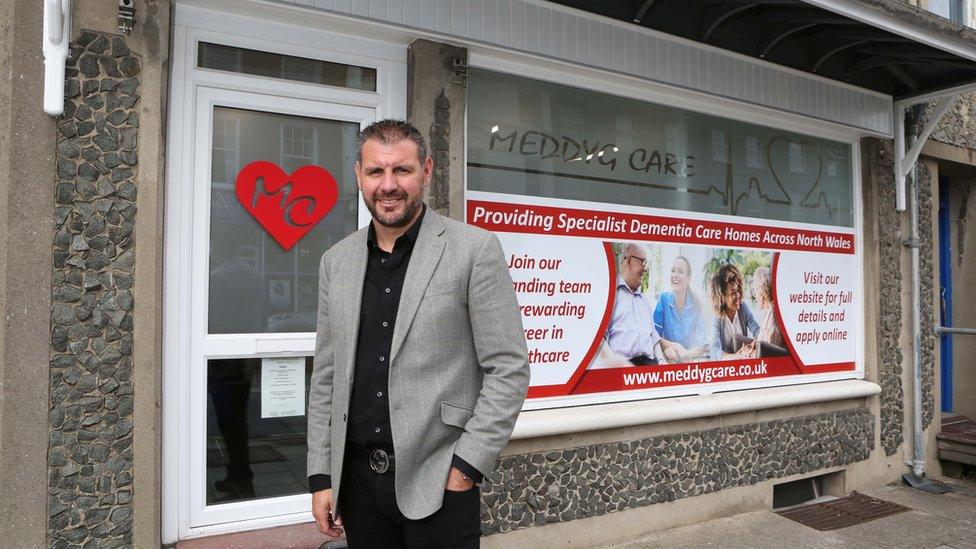Gwynedd: Council votes to increase private care home funding
- Published
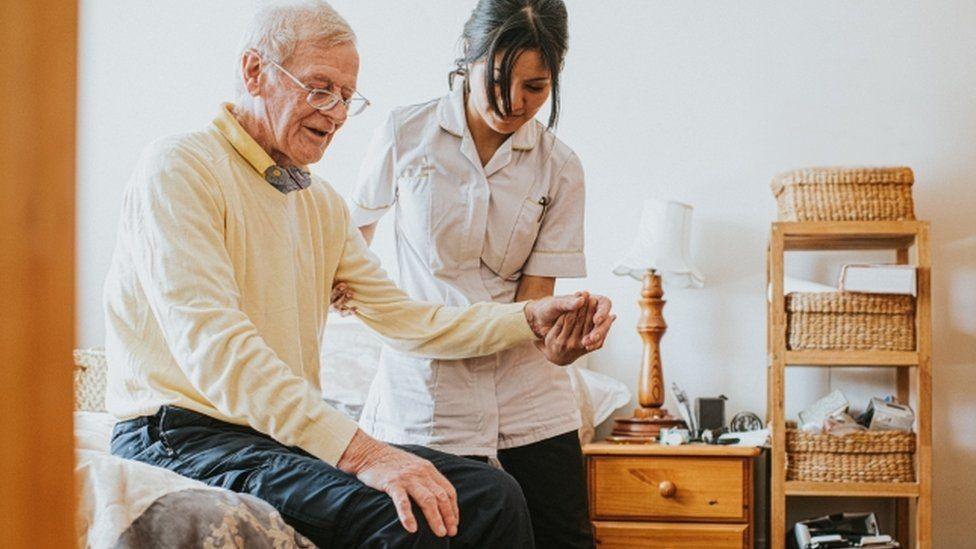
Weekly fees paid by Gwynedd to private care homes for nursing care to £900
The decision by a council to raise the amount it spends on private care homes has prompted calls for neighbouring local authorities to do the same.
Gwynedd's cabinet unanimously agreed to increase fees for nursing care by 25%.
Care Forum Wales (CFW) said it brought funding care funding in Gwynedd closer to the "true cost" of running care homes.
One care home owner said unless others local authorities follow suit, "providers won't be here".
At a meeting on Tuesday, Gwynedd accepted plans, which will:
Increase its weekly fee per person for residential EMI (elderly mentally infirm) care to £780, a rise of 19.8% on 2021/22.
The rate it pays for nursing EMI care will go up 24.7% to £900.
Nursing fees will rise 17% to £800 per week, and residential fees by 10% to £645.
The increases have been welcomed by (CFW) which claimed other north Wales councils spent less per person than many counties in south Wales.
Gwynedd councillor Dilwyn Morgan said a "league table" of what local authorities pay is not important.
"It's about what Mrs Jones wants," he said. "The care she wants, to live as close as possible to her family, and to get the best possible care that's available."
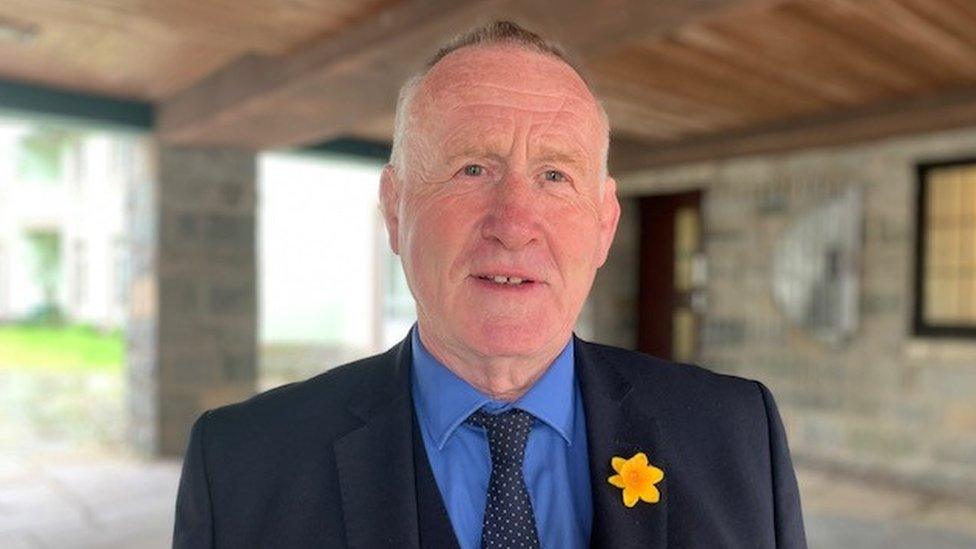
Gwynedd councillor Dilwyn Morgan says the fee increase will mean better care
CFW says rates paid by councils often do not reflect the true cost of care provision.
It can mean families have to make up the difference to prevent care homes from becoming financially unviable or having to close.
"We are grateful to the councillors in Gwynedd for acknowledging their responsibilities and adopting a more realistic approach to setting fee levels to reflect the real costs of providing care," said the CFW chief executive, Mary Wimbury.
"This decision is hugely significant because it hopefully signals the end of the iniquitous north-south divide in social care," she added.
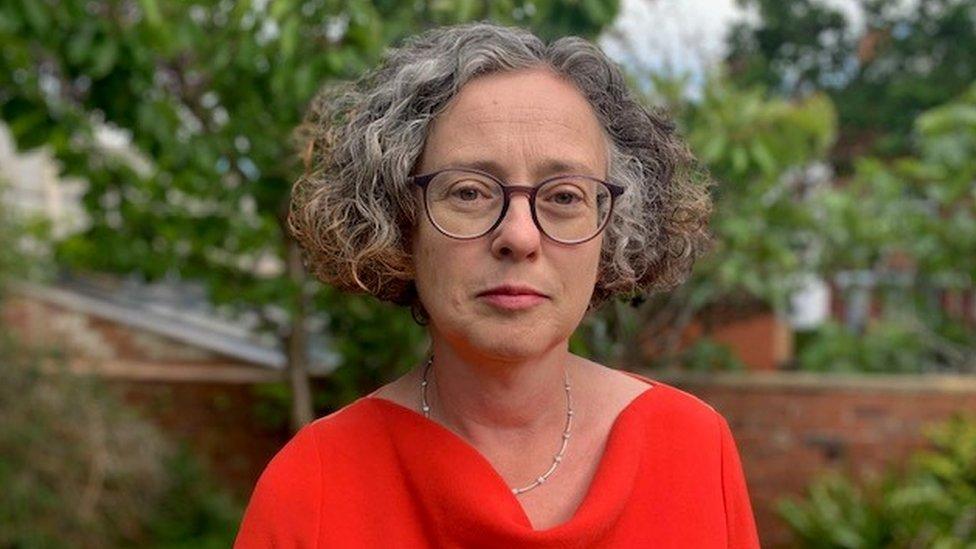
Mary Wimbury says Gwynedd's decision in 'significant'
"Apart from Gwynedd, all the other north Wales councils are lagging way behind in terms of fees, compared to authorities in southeast Wales."
What are fees in other areas?
CFW said Gwynedd's hike in fees means it will now pay £5,124 more per year per person for nursing EMI, than neighbouring Anglesey.
Flintshire council currently pays £646.52 for residential care, £675.17 for EMI residential care, £703.79 for nursing care and £746.72 for EMI nursing care.
In Denbighshire, the rates are £631.72 for residential, £700.12 for residential EMI, £715.88 for nursing and £779.38 for nursing EMI.
According to CFW, Torfaen council pays £806.88 for residential care, £885.91 for residential EMI, £902.29 for nursing and £944.83 for nursing EMI.
In Monmouthshire, it says residential fees are £725, £810 for residential EMI, £766 for nursing and £794 for nursing EMI.
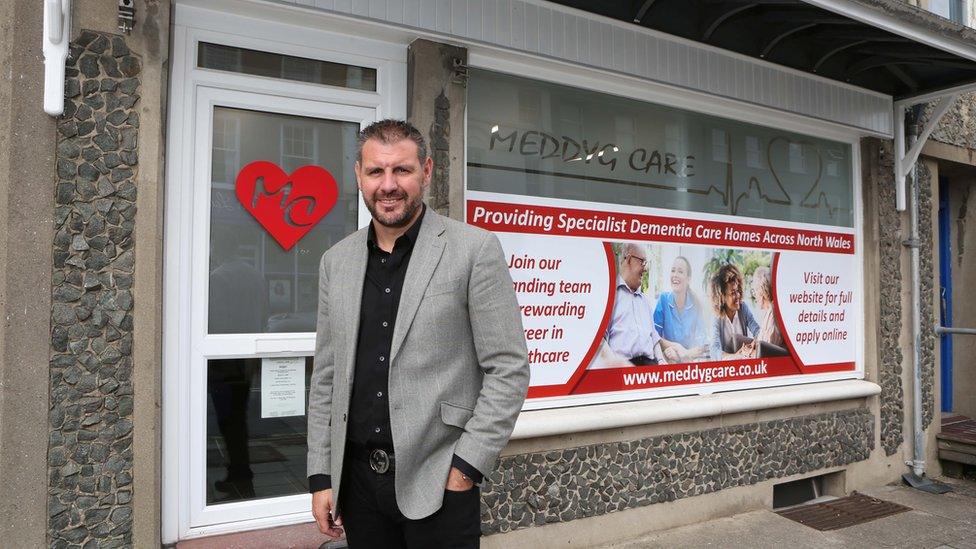
Kevin Edwards, managing director of Meddyg Care, said Gwynedd council's fees covered just 28 hours of personal care for its clients per week
The decision comes after one provider in Gwynedd, Meddyg Care Dementia Homes in Porthmadog, took action against the council for ignoring a judgement made by Northampton Small Claims Court in April.
The High Court ordered Gwynedd to pay £44,529.46 in fee arrears built up at a 40-bed care home in Criccieth.
'Greatest worry'
The managing director of Meddyg Care, Kevin Edwards, said Gwynedd's fees fell well short of what was actually needed to provide care
"This sends a really strong message to all north Wales local authorities that Gwynedd council are prepared to lead the way and to set, to recognise the true cost of care," he said.
"It's imperative that other local authorities now reassess their fee structure and pay care providers what it costs to provide the care so they are here for the future," he added.
"Our greatest worry is that if those issues aren't addressed now providers won't be here to care for vulnerable people in society."
- Published1 June 2022

- Published7 September 2021
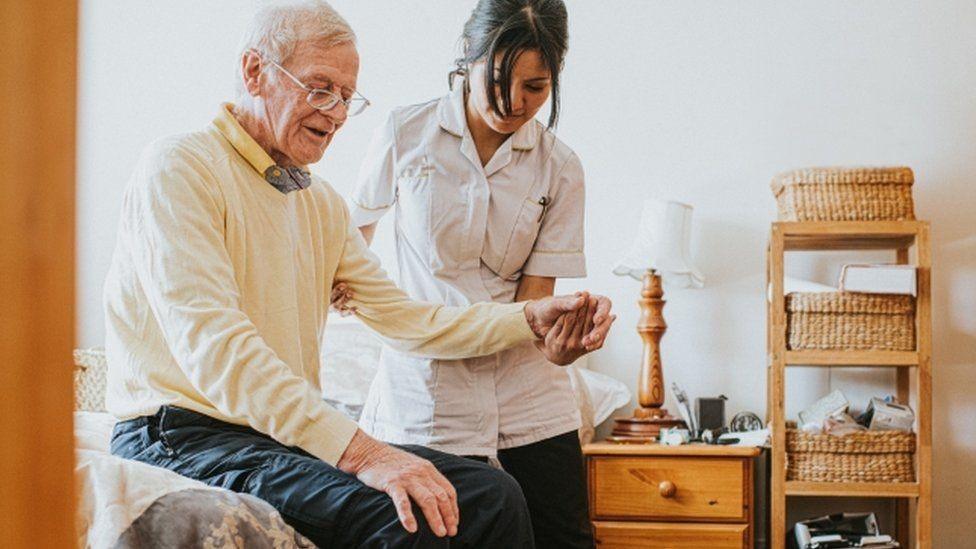
- Published12 May 2022
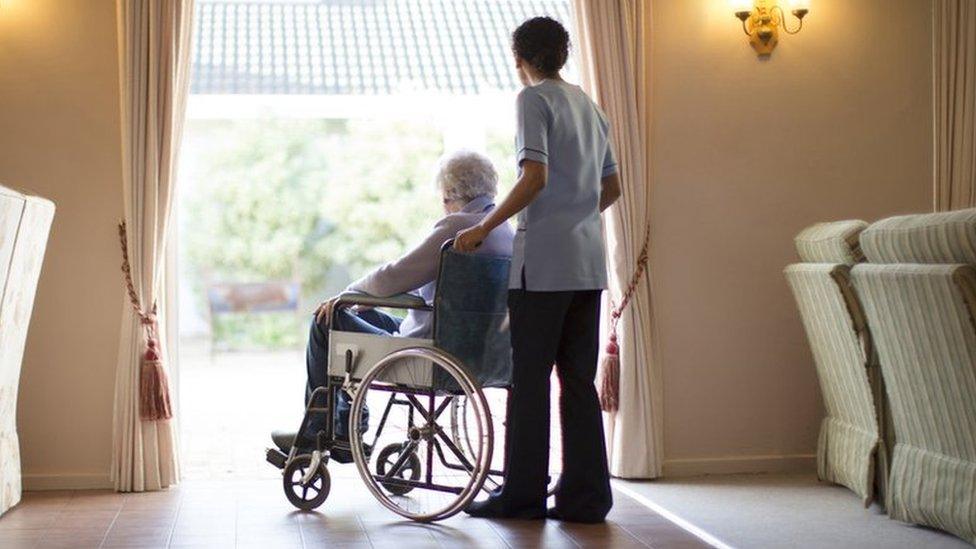
- Published11 May 2022
